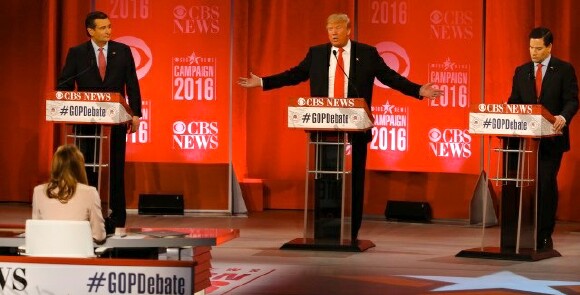Whatever its impact in the months ahead, the trivialization of the primary debates reflects on the media as well as the participants. The TV networks’ exploitation of the debates and the political sloganeering is no less revealing, suggesting among other things that the broadcast and cable news industry has no qualms in kluging public affairs and entertainment. With the networks’ on-air talent goading the GOP candidates into mano-a-mano insults if they even took a breath, the conclusion that the moderators were channeling Jerry Springer wasn’t hard to miss.

It might all be just entertainment, of course, if this wasn’t a pivotal election and the issues weren’t so serious. The fairness doctrine and the concept of equal time may be quaint artifacts of another media era. But the networks’ responsibility as corporate citizens who hold a uniquely powerful position in our political process is not. From the primaries to the general election, how debates are presented is by no means trivial; it affects the quality of what voters know.
Since the 1960s, debates have become central to our presidential elections. Their importance has grown not least because unlike increasingly stage-managed campaigns, they alone can allow viewers to see the candidates unscripted. Despite the explosion of tweets, Facebook posts and Snapchat comments pushed 24/7 by the candidates’ message machines, debates also appear to be holding their own in the new media world. A survey done by Peter Hart and TargetPoint Consultng in 2014 revealed voters consider presidential general election debates a “top source” for information. Consistent with previous polls, a plurality also saw them as their “most helpful” source in deciding how to vote.
The ratings for this year’s primary debates corroborate their value to the voting public. Since the first Republican primary debate in August, when 24 million viewers made it the highest rated cable news program in history, viewers for each of the subsequent debates have ranged from 10-11 million. Democratic audiences also have been impressive -- from 15 million for the first debate last October to some eight million or so this February. For the Millennials who happened to tune in, the issue-challenged GOP debates represent a particularly significant missed opportunity. Millennials make up 31 percent of eligible voters, or about the same proportion as Baby Boomers. When Millennials engage with the political process, the substance of what they watch is especially important if they are to make informed choices.